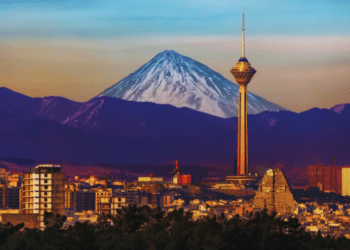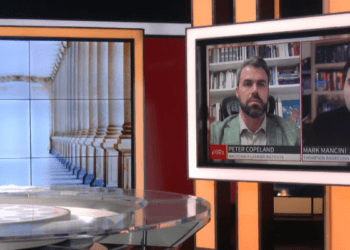 The Magna Carta may have been drafted hundreds of years ago in a country far away, but that doesn’t mean it doesn’t have continuing relevance for Canadians.
The Magna Carta may have been drafted hundreds of years ago in a country far away, but that doesn’t mean it doesn’t have continuing relevance for Canadians.
You can still see the document’s legacy live on in the institutions that today underpin Canada, says Brian Lee Crowley in the Ottawa Citizen.
By Brian Lee Crowley, June 12, 2015
Want to see the first draft of the American constitution? How about our British North America Act or the Charter of Rights and Freedoms?
Go and see what Winston Churchill called one of the great title-deeds of our liberty, the Magna Carta, or Great Charter, now on display in the Museum of History.
How could a document signed 800 years ago at Runnymede be the antecedent of these modern documents? Because Magna Carta’s descendants all depend on one radical idea first crystallised in our British political and constitutional tradition by King John’s capitulation to his barons in a muddy field outside London in 1215. That idea: words written on a piece of paper could constrain the power of kings.
It wasn’t that the idea that the king and others in authority should be subject to the law was new. That argument had been made before and even occasionally honoured. What the new Charter did was to wrest formally from the king the power to determine what the law was, to write it down and to require that he obey it. Saying that those in power are subject to the law isn’t very helpful if they succeed in making the law up as they go along.
It was a long road to Runnymede, and that road was paved with egregious abuses of royal power to pay for King Richard’s military adventures in the Crusades and to ransom him from the Holy Roman Emperor, Henry VI. When Richard died from his war wounds, John ascended to the throne and continued Richard’s policies of arbitrary seizure of goods, exorbitant taxes and compulsory labour. Plus he was a thoroughly despicable man who, one contemporary wrote, had “childish habits of ridiculing his subjects and laughing at their misfortunes.”
But there had been abusive rulers before, and rebellions and anger, calls for the king not to act arbitrarily and royal promises to cease doing so. What made 1215 the vital turning point in our tradition of freedom was that the insurgents didn’t just seek to replace the arbitrary rule of another with their own. The conflict was boiled down to a set of written principles, and the king’s authority was recognised and respected on the condition that he protect and promote those principles.
Those principles were expressed largely as rights inherent in the king’s subjects, rights he could not simply wave away because they were inconvenient. He now needed consent (the “common counsel of our realm”) to levy taxes. If someone was arrested on the king’s authority, habeas corpus ensured that the detention was demonstrably lawful and not arbitrary. Unlawfully seized property was to be returned and trampled rights restored, commerce was to proceed unmolested, disputes between barons and the king were to be settled by juries, forced labour on public works was put an end to. Nor were the rights of women ignored. In theory at least Magna Carta ended the practice of forcing widows to marry and forfeit their property.
When John affixed his seal to the Great Charter he fundamentally changed the basis on which he sat on the throne and exercised power. Now a watchful aristocracy had in effect a contract, a set of conditions on which the rule of John and his successors relied. Authority was transformed from an alternative to the law to the law’s servant, the principle of the consent of the governed formalised.
That’s why it is no hyperbole to see in Magna Carta that first draft of “We the people” or “Peace, Order and Good Government”. Every one of those modern documents starts from the foundational principle that the law trumps power and authority, and that the latter are justified when they secure our rights and freedoms. Eight hundred years later much of the rest of the world hasn’t figured this out, while it is woven into the fabric of our basic institutions. Now that’s history that matters.
Brian Lee Crowley (twitter.com/brianleecrowley) is the Managing Director of the Macdonald-Laurier Institute, an independent non-partisan public policy think tank in Ottawa: www.macdonaldlaurier.ca.





